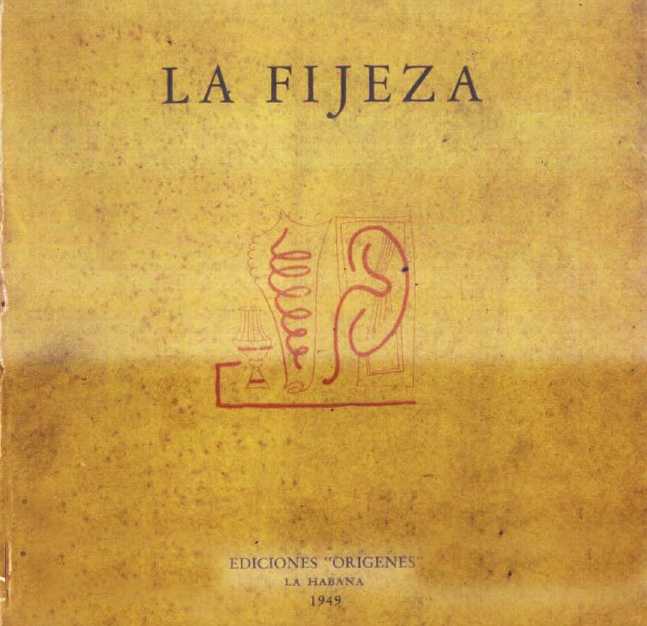4.1.2.2.4 “La Fijeza”, poetic work published by José Lezama Lima (1910 – 1976) in 1949

“La Fijeza” belongs to the Origenist cycle of Lezamian poetics, as it coincided with the magazine’s lifespan and was published under its imprint. In this collection of poems, there is no rupture, but rather his poetic thought increasingly unfolds the substance of his questions, especially with regard to poetry as abstraction and the way it takes shape in the poem.
Among the texts with the most pronounced metapoetic quality are “Rhapsody for the Mule,” “Resistance,” and “Dance of the Gibberish,” the latter being surprising, and even from its very title one can glimpse the advent of another language for poetic expression, a mixtifori of the elements of reality with attributed planes of meaning only Lezamian.
Although language plays an important role in the collection, the exuberance of reality sometimes seems to tear apart the very fiction of the images, an almost cinematic quality, as Lezama, rather than narrating or describing, shows a cosmos that doesn’t necessarily correspond to the collection of references in reality. In “Rhapsody for the Mule,” this becomes evident, along with a peculiar emphasis on the meaninglessness of life and death.
A long poem with a sustained lyrical spirit is “Thoughts in Havana,” in which some of the elements he had been reclaiming from tradition converge to form more than a concept, but rather an experience of the national. Here, the traces of colonization are somehow discernible, and from the first moment of writing, the leitmotif of the earthly is evident:
“For I dwell in a whisper like a candle,
a land where ice is a reminiscence,
Fire cannot lift a bird
and burn it in a calm style conversation.
Although that style doesn’t dictate a sob to me
and a faint leap left me living in a bad mood,
I must not admit the useless march
of a mask floating where I can’t,
where I cannot carry the stonecutter or the door handle
to the museums where murders are covered in paper
while the visitors point out the squirrel
that adjusts the stockings with its tail.
If an older style shakes the tree,
decides the sob of two hairs and exclaims:
“my soul is not in an ashtray.”
With this collection of poems, Lezama consolidates his poetics of the transcendent, which implies a peculiar view of reality, where essential lyricism is linked to it but at the same time moves towards another universe, where images of difficult understanding take shape because language alludes to different meanings, where the translatability of meaning travels a greater distance than usual, one could say that a thought in pure images, which form sufficient verbal buildings.








